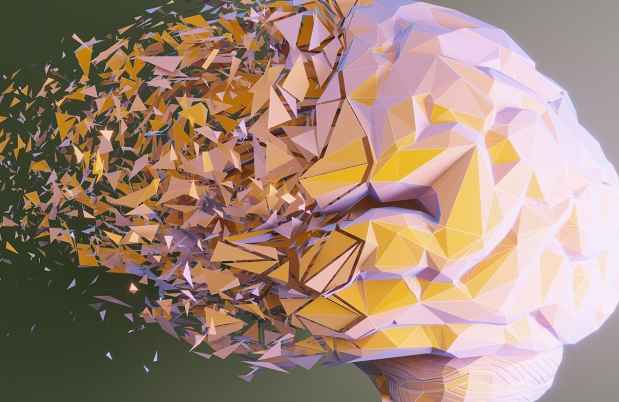Navigating the Ups and Downs of Bipolar Disorder
Available with English captions and subtitles in Spanish.
There’s no question that mood shifts are a part of life. We all experience what it’s like to go from being happy to feeling sad, and the other way around. But for the millions of people living with bipolar disorder (BD), these shifts can be intense, jarring swings between deeply depressive states and episodes of mania.
Untreated, the disorder can make even daily tasks seem impossible. But with the right care, BD can be successfully managed, allowing those navigating its challenges to thrive.
So how can we recognize whether someone is experiencing the onset of this serious mental health condition? What should we know about the different types of bipolar disorder? And what does effective treatment look like?
Audience Questions
Kirsten W. Bolton, LICSW, discusses the various forms of bipolar disorder, shares tips for identifying manic and depressive episodes, and answers questions about effective treatment methods and additional supports for someone living with BD.
- What exactly is bipolar disorder (BD) and how does it impact those living with the disorder?
- There are different types of bipolar disorder. Can you walk us through bipolar I versus bipolar II?
- Is one of the two more prevalent than the other?
- Does one form of BD ever morph into the other?
- Is cyclothymia also a form of bipolar disorder?
- Are there always episodes of depression with bipolar I, or is it possible to experience mania without depression?
- How can we best recognize what are mood swings or what are signs of something more serious, like bipolar I or bipolar II?
- What are some additional signs of a manic episode?
- Can you speak to the people who experience mania, but who don’t stay awake for extended periods of time?
- What about the other side of the equation, the depressive episodes? Do these look like what we might see in general depression?
- Is the speed of a mood swing itself significant in the diagnostic process for BD?
- Can you speak to how long periods without sleep may impact people living with BD?
- What does psychosis look like for somebody living with bipolar disorder? Is it different between bipolar I and bipolar II?
- How does a professional diagnose bipolar I, bipolar II, or any of the other associated disorders? Are there specific criteria for an official diagnosis?
- Have you found in the professional world that there are confusions and misdiagnoses that increased BD awareness can help us address?
- Can people be too young to be diagnosed with bipolar disorder?
- Is there a typical age at which someone is diagnosed with bipolar disorder?
- Is a physical exam part of the process for a bipolar disorder diagnosis?
- What about the root causes of bipolar disorder? What do we know about the physiological origins of all of this?
- Does BD present differently for teens and young kids than it does for adults?
- Generally speaking, how treatable is bipolar disorder?
- What happens if someone with BD goes untreated?
- What should we know about medication and its use for bipolar I and bipolar II? Is there a distinction between the two?
- Has the medical approach changed over the years in terms of what medications are being used and how they’re being administered?
- I can imagine how difficult it must be to address both states of mania and depression with medication. Are medications used differently for these, or is the whole idea to even things out along the way?
- Can you speak a little bit more about electroconvulsive therapy (ECT)?
- Is talk therapy a part of the treatment process?
- How common is it for someone with BD to experience other mental illnesses at the same time?
- So, it’s really important to tease out what’s what in terms of diagnosing somebody with these multiple challenges?
- What should educators, professionals, and loved ones know about someone with BD misusing substances? What are things to watch out for?
- Is it common for there to be a connection between traumatic events and a new diagnosis of bipolar disorder?
- Do you have any suggestions for clinicians that will help them differentiate between bipolar disorder and disorders that may also include significant mood swings, such as borderline personality disorder (BPD)?
- How often do you meet patients with a lack of insight into their mental health struggles or who might be resistant to treatment?
- For those who live with these disorders, or live with someone who does, what are some of the early signs of a manic or depressive episode?
- Is eye movement desensitization and reprocessing (EMDR) or ketamine used in treatment for bipolar disorder?
- Is anger and abusive language common surrounding manic episodes? What recommendations do you have for those supporting somebody living with BD?
- What are some popular myths about bipolar disorder that are portrayed by the media and elsewhere?
- Do you find that people are becoming more cognizant of what to look for around bipolar disorder and that treatment is out there? Are things moving in the right direction?
- If you think that you might be struggling with bipolar disorder, or someone that you love is, what would be the first step for getting help?
- What can people with bipolar disorder expect once treated ?
- What resources are available for families, friends, and caretakers of those living with BD?
- If psychosis is not present, are the medications typically used for bipolar I and bipolar II generally the same?
- Is it possible for ECT to trigger manic episodes? Has it been proven to be effective overall for people living with bipolar disorder?
- Where is the field now on neuropsychological testing for bipolar disorder?
- Can you talk about self-maintenance and self-care ideas for those living with BD, such as charting their mood swings or whatever else you’d like to share?
- What is important messaging surrounding bipolar disorder?
The information discussed is intended to be educational and should not be used as a substitute for guidance provided by your health care provider. Please consult with your treatment team before making any changes to your care plan.
Resources
You may also find this information useful:
- Depression and Bipolar Support Alliance: DBSA
- Everything You Need To Know About Bipolar Disorder
- Video: Meet Andy, He Has Bipolar Disorder
- Deconstructing Stigma: Lindsay’s Story
- Everything You Need To Know About ADHD
- I Am Not Sick, I Don’t Need Help! How to Help Someone Accept Treatment – book by Xavier Amador, PhD
- Shock: The Healing Power of Electroconvulsive Therapy – book by Kitty Dukakis and Larry Tye
About Kirsten W. Bolton
Since 2008, Kirsten W. Bolton, LICSW, has been working with patients and their families in McLean’s Division of Psychotic Disorders. A graduate of Simmons College, Ms. Bolton began her work at McLean as a clinical social worker in the Schizophrenia and Bipolar Disorder Inpatient Program.
Previously, Ms. Bolton was program director of McLean OnTrack, a first episode psychosis program for young adults. She is now the program director of Appleton, a residential treatment program that supports individuals who struggle with schizophrenia and bipolar disorder or who experience psychosis.
Learn more about Kirsten W. Bolton.
More Webinars
It’s important to think about ways to manage your mental health. McLean is committed to providing mental health and self-care resources for all who may need them. You and your family may find these strategies from McLean experts helpful to feel mentally balanced in your everyday lives.
Sign up now for the next webinar in our Mental Health Webinar Series.



